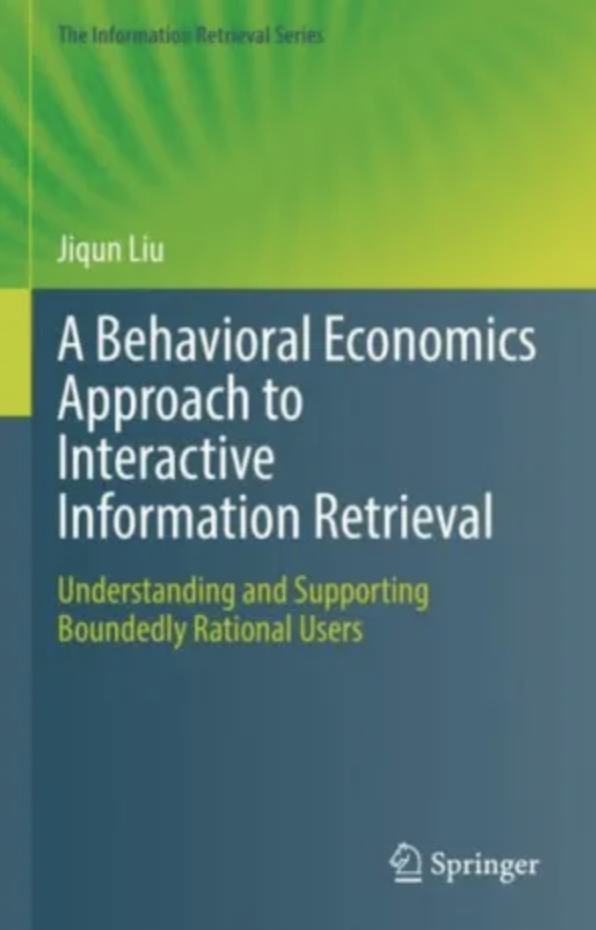Jiqun Liu, Ph.D., assistant professor of data science in the School of Library and Information Studies and adjunct assistant professor in the Department of Psychology, Dodge Family College of Arts and Sciences, has authored a research book titled, “A Behavioral Economics Approach to Interactive Information Retrieval: Understanding and Supporting Boundedly Rational Users,” currently in production with Springer Nature.
As part of his ongoing National Science Foundation project, Liu’s book brings together insights from information seeking and retrieval, cognitive psychology and behavioral economics, and shows how this new interdisciplinary approach can advance knowledge about users interacting with diverse search systems, especially their seemingly irrational decisions and anomalies that could not be predicted by most normative computational models.
“This book marks a milestone on my research journey,” Liu said. “It provides a brand-new perspective for the information retrieval research community to better understand users’ motivations, behaviors, and experiences in information interactions from a human-centered perspective. The questions and methods proposed in this book will become even more relevant and significant as we move closer towards ubiquitous human-AI collaborations across varying domains.”
For his next step, Liu will leverage the knowledge about human biases in building bias-aware user behavior prediction models and item reranking algorithms. “Based on previous behavioral patterns, information encountered and other user characteristics as the inputs, the customized bias-aware models will proactively estimate individual users’ risks of being negatively affected by certain biases and then offer in-situ reminders, recommendations, or interventions accordingly,” he said. “These models will serve as the basis for building next-generation information retrieval systems that understand users (especially their in-situ cognitive biases) and support their information interaction and critical decision-making better.”
More information about Liu’s forthcoming book is available via Springer.


